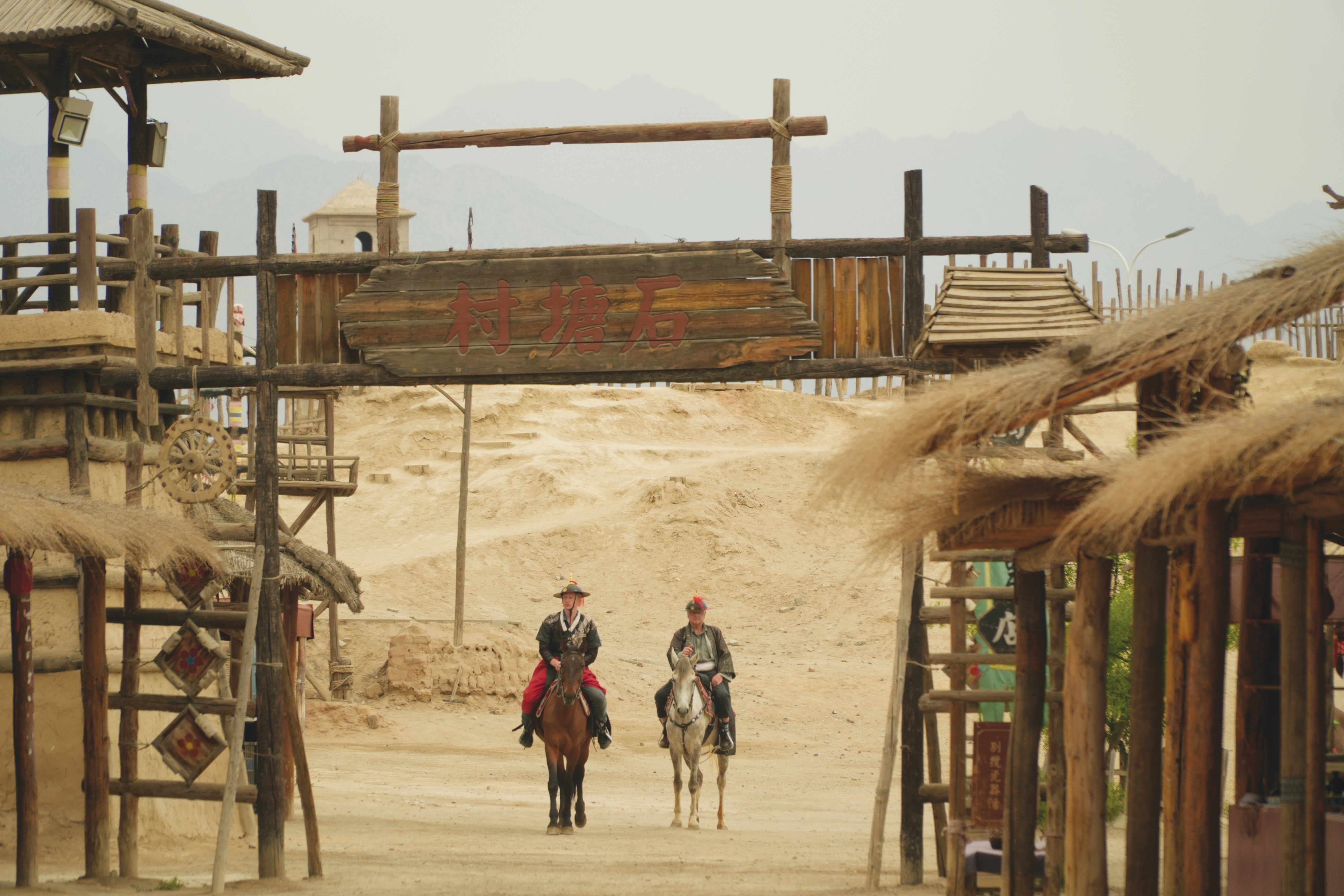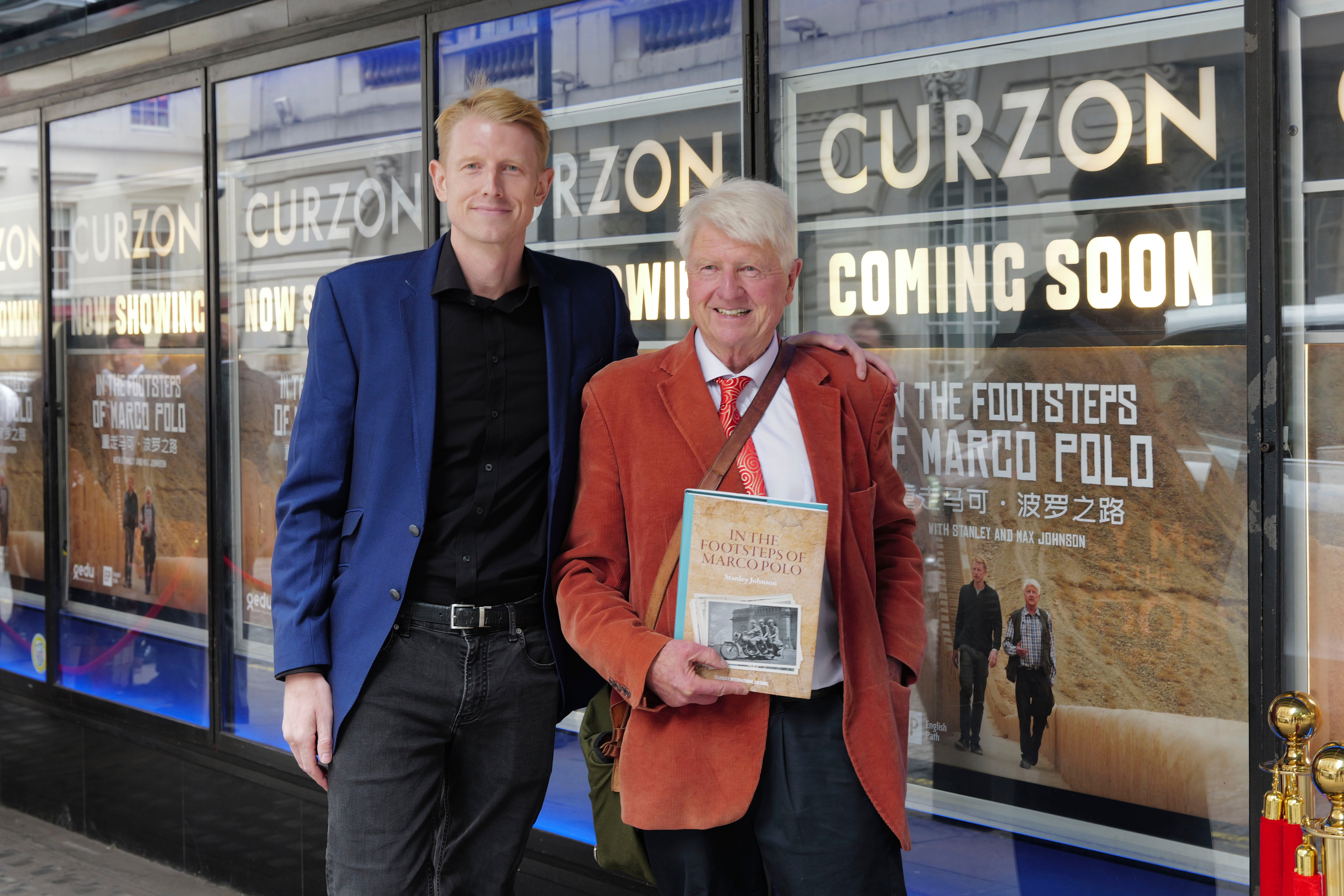In Marco Polo’s ancient footsteps
THE ARTICLES ON THESE PAGES ARE PRODUCED BY CHINA DAILY, WHICH TAKES SOLE RESPONSIBILITY FOR THE CONTENTS

It’s a story about pursuing one’s dream, a story of collaboration between China and the United Kingdom, and a story of cultural exchanges and mutual learning — all contained within the new documentary film In the Footstep of Marco Polo, which had its world premiere in London earlier in July.
Marco Polo was an Italian merchant and explorer who travelled through Asia along the ancient Silk Road in the 13th century, ending his journey in Dadu, the capital of the Yuan Dynasty (1271-1368), which is present-day Beijing.
His observations and details about his route were recorded in the book The Travels of Marco Polo, which was later translated into many European languages and that inspired generations of Western travellers to go East.
Stanley Johnson was one such follower of Marco Polo.
An author, environmentalist, and former member of the European Parliament, he is also the father of the former United Kingdom prime minister Boris Johnson.

Last year, Stanley and his youngest son, Max Johnson, participated in a China-UK documentary project that showcased the country’s astonishing landscapes while featuring engaging interviews with locals and capturing the hilarious banter between the 84-year-old father and his 39-year-old son.
Following part of the ancient route, their journey covered more than 3,100 miles, starting from a land port 16,730ft above sea level on the China-Pakistan border at the Khunjerab Pass and crossing the Xinjiang Uygur autonomous region, through the Taklamakan Desert, through Gansu province to the Mogao Caves, traversing the highlands of the Inner Mongolia autonomous region, and concluding in Beijing.
As an undergraduate at the University of Oxford in 1961, Stanley Johnson, along with two friends, Tim Severin and Michael de Larrabeiti, embarked on an ambitious adventure through Turkiye, Iran, and Afghanistan as they inched closer to the Chinese border.
The trio was travelling on motorcycles and found they could not cross the Pamir Plateau between Central and South Asia on two wheels.
Forced to give up, they vowed to return and complete the journey together one day, but the dream did not come true for de Larrabeiti and Severin, who passed away in 2008 and 2020 respectively.
In 2023, accompanied by his son, Stanley picked up the unfinished journey he began six decades earlier and continued.
“This is the realisation of quite a long-held ambition. I’ve been to China a lot of times, but I’d never done the whole route that I wanted to do,” he said.
His son Max, who had visited Kashgar in Xinjiang Uygur autonomous region when he was 20, said: “This time, I went back and to see the development was just incredible. And then obviously, I’ve been to Beijing. I live in Hong Kong. But to me, to see how much China developed, how quickly China developed, is very fascinating.” Max had studied in Beijing and can speak fluent Mandarin.
In the documentary, Stanley and Max take the audience to see some of the most breathtaking landscapes in Northwest China. Driving a 4x4 SUV, the two slowly descended 3,280ft by going around more than 600 turns on a mountain highway called Panlong Road, or twisting dragon road, near Kashgar.
They also board an overnight sleeper train from Hotan to Ruoqiang, the latest leg of the world’s first railway loop line circling a desert that opened in 2022, which crosses China’s largest desert, Taklamakan, with ease. “This is the modern version of the Silk Road,” Stanley exclaimed in the film.
In addition to seeing magnificent scenery, the Johnsons meet various people along the way.
They had the chance to talk to historians at sites in Xanadu, the northern capital of the Mongol Empire, and in the Forbidden City, tracing Marco Polo to the places he must have been, and the things he could have seen.
“Macro Polo became the great bridge-builder between the East and the West, and he is still very much appreciated in China. To me, I hope this film will also help in a symbolic bridge-building,” Stanley said.
